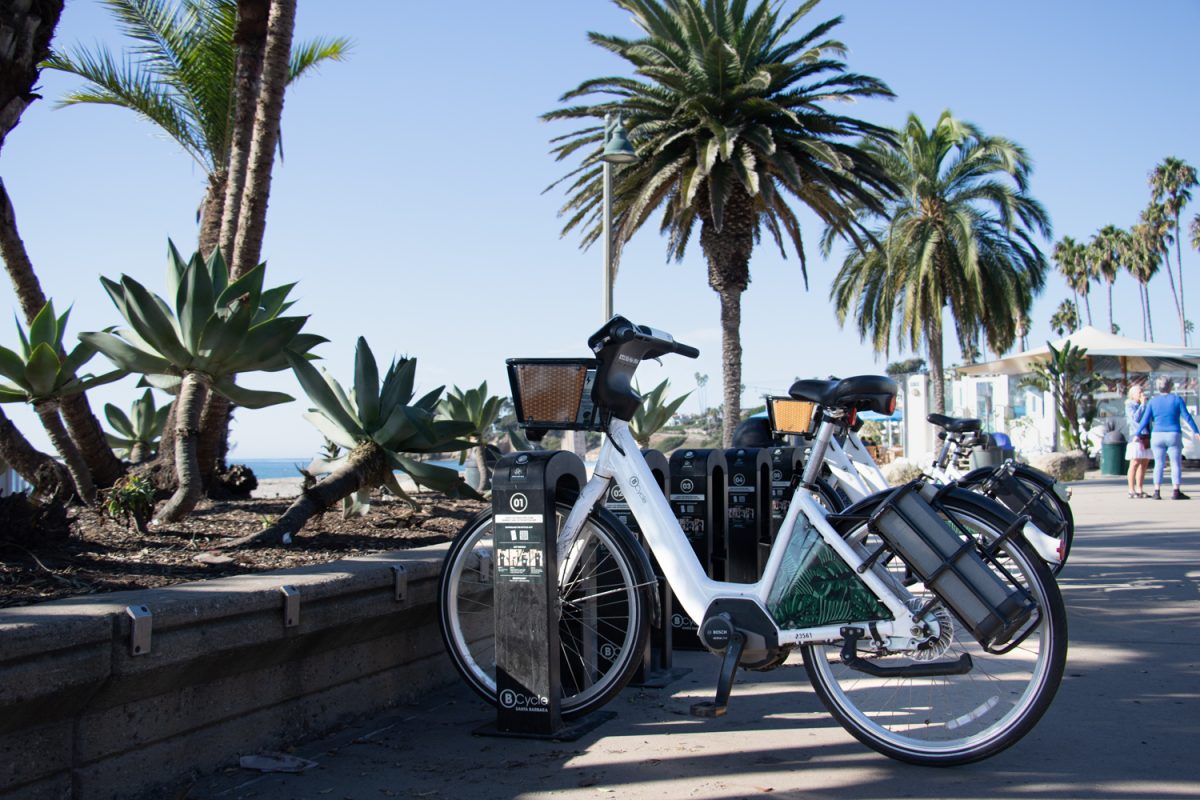On Oct. 5, phase one of a bike sharing program with Santa Barbara BCycle, a local bike-sharing company with hundreds of docking stations throughout the city, was presented to the Board of Trustees, with the pitch for City College to invest $30,000 per year.
This plan includes hosting 10 e-bikes and 20 docking stations on City College’s main campus, but does not plan to pay for student usage of the e-bikes. The parties proposing the plan hope to provide students with an alternative to cars while simultaneously investing in a local business, and promoting it among students.
Should these e-bikes really be taking priority over the numerous overdue operations and improvements City College can invest this money in?
The renting of electric bikes and scooters is a familiar pastime for many students, and the convenience of these new modes of transportation gives students another way to get from one place to another. These potential upcoming docking stations, located on the motorcycle parking on West Campus, and a lower lot next to Cabrillo Boulevard, are they not 200 feet from an already available docking station. With hundreds of docking stations scattered around downtown Santa Barbara, many students in the area already have access to these e-bikes and have chosen not to use them for commuting.
This may be because City College’s West Campus parking lot is known for the low-riding car’s worst nightmare. As its asphalt entrance slowly deteriorates every day, so does the average Honda Civic’s front bumper. As part of their daily off-roading after the turn off of Cliff drive, City College students must traverse a maze of dips and potholes in order to land a spot within walking distance of their classes.
Not only do City College students have to fight for the longevity of their bumper, but they must also fight for limited parking with the 200 Antioch University students who are also in need of parking.
The need for parking is apparent to the entire City College community, and reducing car usage is an effective way to open up more spots.
Even so, this business partnership would only create 20 parking spaces, and would cost the school $30,000 that could be spent on its students, who would still be paying out of pocket to use these bikes.
Not to mention the extreme safety risks that any e-bike users will be automatically taking by choosing to ride near City College’s campus. The steep inclines are frequently the site of vehicular crashes, and the fact that City College has ensured in their potential contract with Santa Barbara B-cycle. That they will not be liable for any potential damages, it seems as if our administration is knowingly ignoring these risks.
The SBCC Foundation is set to fund the initial trial period of this partnership. This is money that typically funds numerous City College resources, including the SBCC Promise, Rising Scholars, the Luria Library, and more. Though we recognize the initial thrill and excitement of a new program, we urge the foundation to reassess its priorities.
There is a bumpy, pothole-riddled road ahead of City College, and it is important to fix current issues that affect students and faculty daily before moving on to a big project such as the partnership with Santa Barbara BCycle. Even though e-bikes can be a thrill, they are a costly safety hazard that City College cannot currently afford.



